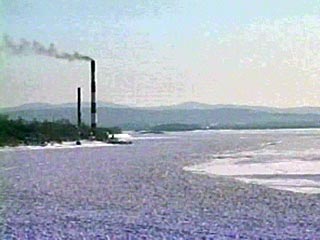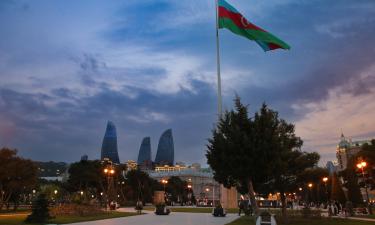Chemical blast in Harbin leads to water crisis in Russia's Far East
A bottle of fresh water becomes as precious as gold as poisonous waters appoach Russia's borders
The recent breakdown at the Chinese chemical plant in Harbin, which took place on November 13, has received extensive coverage in the world. According to experts' estimates, the polluted waters will reach Russia's Far East on December 8-10. 
The blast at the chemical plant in China produced a water crisis in the Far East of Russia. Companies that sell bottled water to offices do not accept any orders because limited stock; local residents fill every tank and container, which they find at home with tap water; one can hardly find any water and even juice in grocery stores. Region's largest beer makers suspended the production of beer and started making potable water instead. The production of bottled water has increased 25 times in the region.
The Amur River in the Far East of Russia has completely lost its reputation of one of the cleanest rivers in the world. Holiday-makers could drink pure water from the river many years ago and they did not have to worry about health. Nowadays it is dangerous even to swim in the river: crystal-clear water has turned into muddy flows.
Russia's neighbour, China, contributes a lot to Amur's pollution: many Chinese enterprises do not have any water treatment facilities. Production wastes are usually discharged into Amur's confluents. Local fishermen say that fish has obtained a distinct phenol smell in recent years.
Specialists are afraid to say what is going to happen to the nature of the Amur region, when the huge poisonous spot of benzene reaches Russian borders. Benzene is categorized as one of the strongest and most dangerous poisonous substances. Just a teaspoonful of this poison dissolved in six tons of water seriously threatens human health. Over 100 tons of benzene-containing substances have been discharged in the Sungari River as a result of the blast at the Chinese chemical plant.
When the poisonous spot was flowing down the Chinese city of Harbin, local authorities said people should stay away from the river and close windows of their apartments for several days.
Many Russians residing in Khabarovsk (Russia's Far East) decided to leave the city for the time, when the polluted waters flow the city by.
About 1.5 million Russians use the water from the Amur River in their homes. It is not only Khabarovsk, which may suffer from toxic waters: a lot of other cities and smaller towns are situated downstream on the banks of Amur.
The Chinese authorities have already apologized for the breakdown at the chemical plant. Beijing promised to render all necessary help to Russia and acknowledged that the blast would lead to serious ecological consequences.
Discuss this article on Pravda.Ru ENGLISH FORUM
Subscribe to Pravda.Ru Telegram channel, Facebook, RSS!


